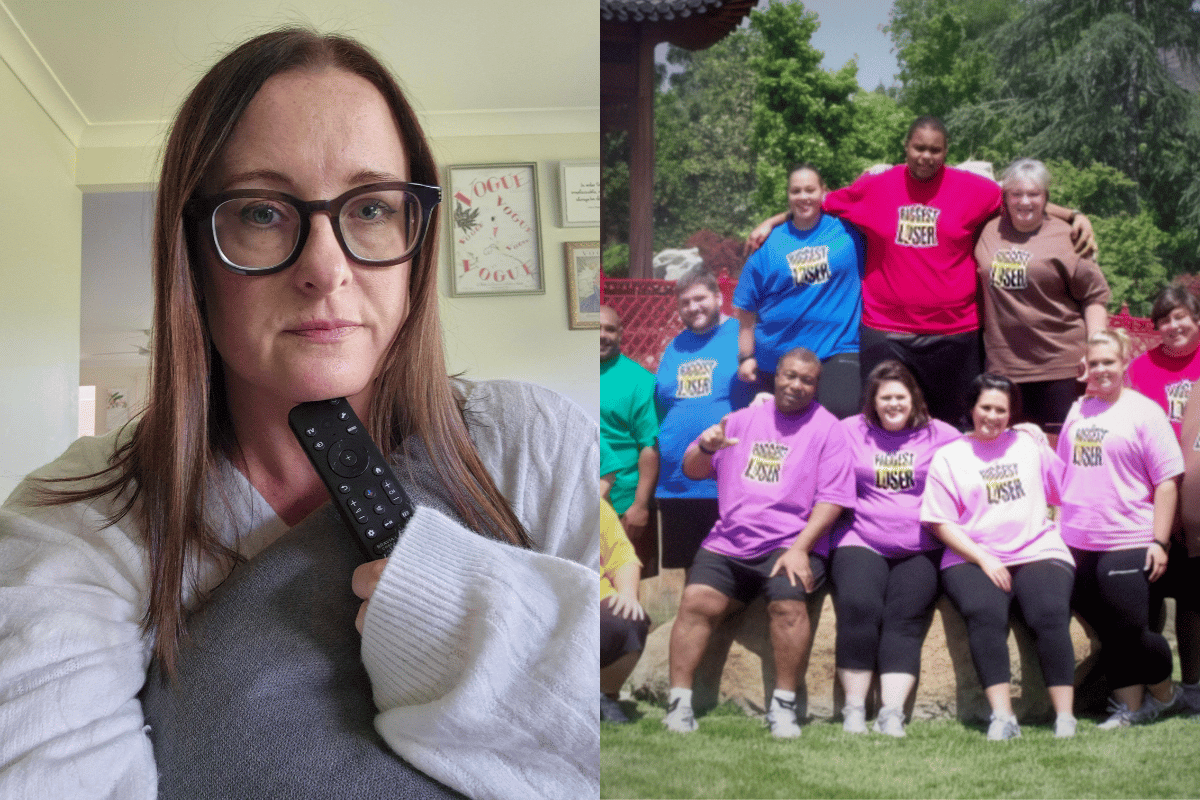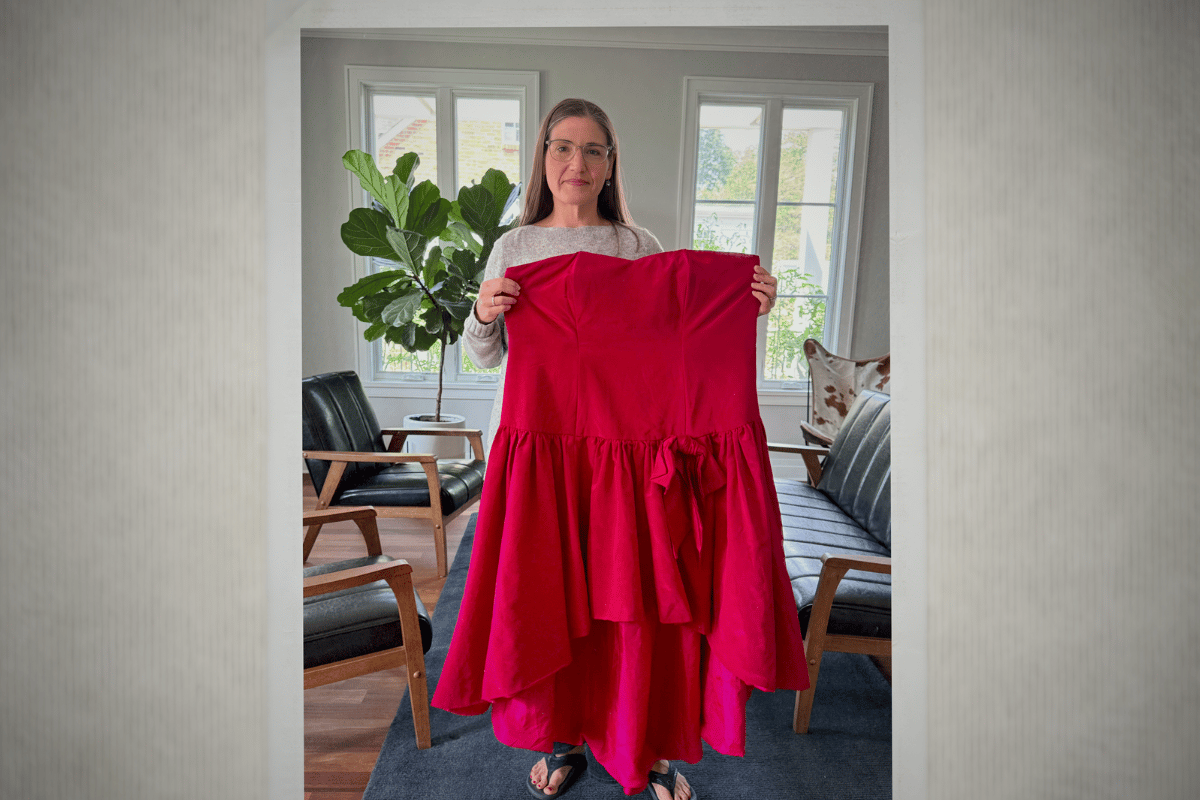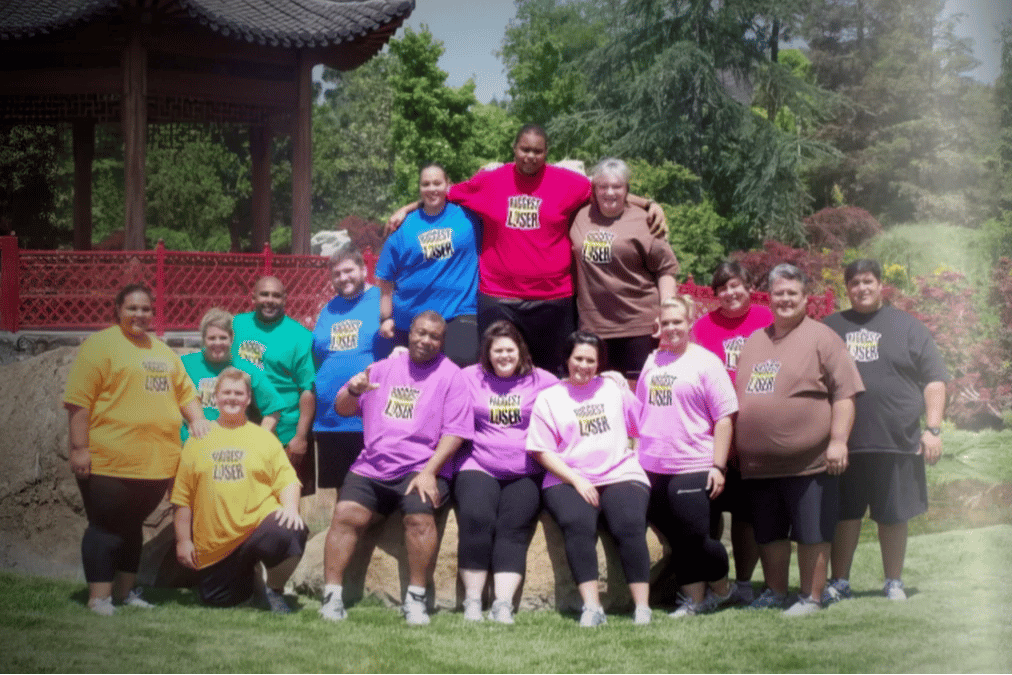
If you want to support independent women's media, become a Mamamia subscriber. Get an all-access pass to everything we make, including exclusive podcasts, articles, videos and our exercise app, MOVE.
I was sick last weekend, so I dedicated some time to bingeing content that had been sitting on my watch list.
Sexy Eric Bana and gorgeous Sam Neill in Untamed? Absolutely. The final eps of And Just Like That? Of course. That crazy movie about a bunch of billionaires who get together for a poker night while the world is slowly going to hell because of one of their AI inventions (Mountainhead)? Also yes. But one documentary caught me completely off guard.
Fit For TV: The Reality Of The Biggest Loser is currently streaming on Netflix, and it is triggering as hell.
Watch the trailer here. Post continues below.
When The Biggest Loser debuted on Aussie TV in 2006, I was in my 20s and incredibly influenced by diet culture.
If you haven't seen it or were too young to catch it in its prime, the show followed contestants — some weighing nearly 170 kilos — after they were sent to the Biggest Loser Ranch to undergo an intensive regime of dieting and exercise. Each week, they'd be weighed to see what percentage of body weight they'd lost.
































































































